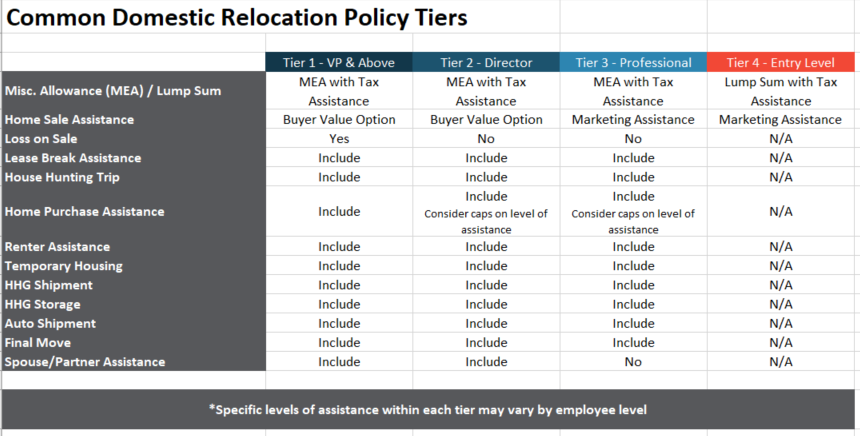Learn why it’s important to include family and spousal support in relocation assignments
Relocating employees often have questions regarding their children’s education, family healthcare, eldercare, and the job market and career support for their accompanying partner or spouse. Understanding your employee’s needs is essential to their relocation process. By providing valuable resources for transferees and their families, your company can help ensure a successful relocation.
In Worldwide ERC’s report, U.S. Transfer Activity, Policy & Cost Survey, the average cost to relocate a home-owning employee is approximately $79,000. Family concerns about the relocation often make employees reluctant to accept transfer assignments. Reasons include fears about the new location, spouse reluctance to leave their current position, housing market issues, and cost of living differences. There are many actions employers can take to ensure their employees and family members have a positive relocation experience.
Pre-Decision Services
Your company should provide Pre-Decision Services for employees to help them learn about the relocation assignment. Candidate assessments and family pre-decision evaluations help your company determine the employee’s expectations, skills, personal qualities, family situation, and financial readiness for the relocation. Helpful information your company can provide to the employee and their family for their decision-making process includes:
- Cost of living analysis
- Market analysis for home sales
- School reports
- Moving cost estimates
- Community searches and tours to familiarize employees and their family members with the new location
Significant benefits to the organization include increased job acceptances, accurate budgets, minimal policy exceptions, and cost savings. Benefits for employees include expert counsel to help understand all their relocation assistance, a dedicated consultant and support services for spouses and partners.
Career Support
Your company should provide career support services to the partners and spouses of relocating employees. An experienced and well-qualified Relocation Management Company (RMC) can provide industry best practices and a relocation benchmarking study for guidance on how to set up your relocation program. Career support should include the following:
- Comprehensive career assistance that reviews a candidate’s experience, identifies personality type, discusses the importance of corporate culture, develops an application schedule and goals, offers resume review, provides networking and interview preparation, and assists candidates in navigating job listings and online resources.
- Access to the company’s network of recruiters it uses for its staffing requirements; some Relocation Management Companies (RMCs) can provide access to a larger recruiter than the company’s current in-house program.
- Partners or spouses may have a small business with unique needs and require specific guidance when relocating their business. Resources for partners or spouses looking to start a new business or relocate an existing company may include market analysis, networking assistance, and introductions to the startup community in the new location.
Family Support
Relocating employees and their family members often deal with several stressful factors and situations as they relocate. Your company can help smooth the process by providing resources to help everyone acclimate to their new location. Relocation programs should include resources for settling into the area, such as:
- Access to online resources and community networks in the new location
- Attaining a local driver’s license
- Child care arrangements
- Connecting utilities and arranging for installations
- Interim health insurance coverage
- Locating a primary care physician in the new location
Let GMS Assist Your Employees and Their Families
Providing a full range of career support and other resources for transferees and their families serves to ensure successful relocations. The corporate relocation experts at Global Mobility Solutions (GMS) have the knowledge and expertise to help your company assess candidates for assignments and provide your employees and their family members with the best relocation experience.
Contact our team of experts to discuss how we can help strengthen your relocation assistance offerings. We will ensure your company stays competitive in job offers with comprehensive relocation packages. Then, we will assist your employees in the most seamless relocation process possible.
We're Here to Help! Request a Courtesy Consultation
Are you ready to talk to a Mobility Pro? Learn how GMS can optimize your mobility program, enhance your policies to meet today’s unique challenges, receive an in-depth industry benchmark, or simply ask us a question. Your Mobility Pro will be in touch within 1 business day for a no-pressure, courtesy consultation.











